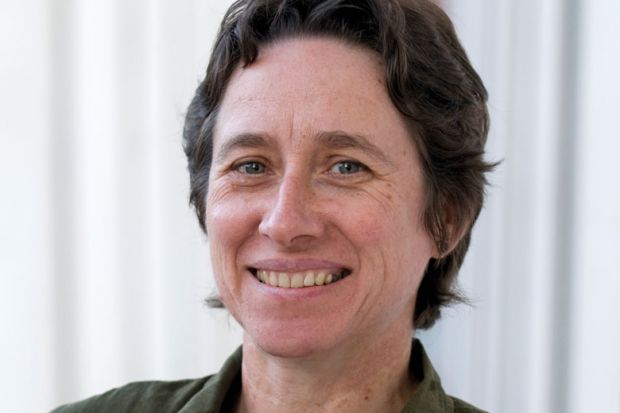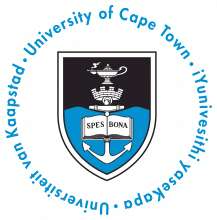Christina Murray is a constitutional and human rights law academic. She was previously professor of constitutional and human rights law at the University of Cape Town and a senior adviser to the UN Department of Political Affairs on constitution-making in post-conflict situations. She was on the advisory panel for the South African Constitutional Assembly that drafted the country’s “final” constitution between 1994 and 1996 and has subsequently served on the Constitution Commission of Fiji and as one of the experts appointed by the Kenyan Parliament to draft the country’s new constitution in 2009-2010. She has also done constitutional work in Yemen, Somalia, Egypt, Nepal and Pakistan. In March, she took up the post of Director of the Bingham Centre for the Rule of Law.
Where were you born?
Cape Town, South Africa
How has this shaped you?
Hugely: I lived through South Africa’s transition from apartheid to democracy. I saw the indignity that institutionalised racism imposed on people; I had the privilege of working with people who had suffered deeply under apartheid but who nonetheless contributed selflessly to building a non-racist country; and I have seen how difficult transformation is.
What convinced you to take the position at the Bingham Centre?
The rule of law is the foundation of a just and fair society but it is easy to take it for granted and for us to fail to see when it is being undermined. The Bingham Centre is committed to the protection and promotion of the rule of law in practical ways in the UK and worldwide. I want to be part of this project.
You’ve helped to draft constitutions for many different nations in your career. Did you ever step back and think: wow, I’ve just played a part in influencing a country’s direction?
Yes, it is an enormous privilege to participate in drafting a constitution. But each of the many individuals who contribute to the adoption of a new constitution plays only a tiny part and a great deal of the privilege has been to work with many extraordinary people in different countries.
Do you ever feel in any way daunted by the weight of responsibility of helping to create post-conflict constitutions? Presumably different factions will find it difficult to agree with each other on certain matters?
The most difficult part of post-conflict constitution making is to ensure that whatever agreement is reached is a real agreement, not a short-term deal made in the interests of a few strong parties or a solution that no one really intends to take seriously or an agreement that sets up an attractive but unrealistic arrangement. The enormous pressure to “get to yes” means that constitutional deals are often superficial. Pushing for sound, viable solutions is difficult.
What has been the trickiest situation you have helped out with during your career and why?
They’re all tricky in their own way. But serving on Fiji’s constitution commission may have been the trickiest: the agreed constitution-making process did not fit the political context and so failed.
We’re in a very volatile situation today – particularly in the Middle East. From your experience, how difficult will sorting out post-conflict constitutions in affected countries be?
In short, very difficult. But most importantly, a constitution is not the starting point for reaching peace. A solid, inclusive peace agreement comes first. Building a constitutional settlement on a real agreement is easier.
What has changed most in global higher education in the past five to 10 years?
Over the past 20 years, in the English-speaking world, universities have become dominated by administration and managerialism that leaches resources from their prime functions.
What’s your most memorable moment at university?
A University of Cape Town graduation ceremony – perhaps 15 years ago – at which both Nelson Mandela and Desmond Tutu spoke to a hall-full audience of new graduates.
What kind of undergraduate were you?
Average, I guess, and deeply involved in the university’s amateur theatre – behind the scenes, never onstage.
What is the biggest misconception about your field of study?
The biggest misconception is that there is so much disagreement about the rule of law that it is not a useful concept. As with every concept, there is disagreement about its ambit, but there is pretty broad agreement on its fundamentals: laws must be clear and equally applied, and everyone must have access to justice and rights and to a fair trial before independent judges.
What one thing would improve your working week?
Less commuting.
What project would you undertake if money was no issue?
Set up a programme across anglophone Africa that supports academics teaching in programmes related to the rule of law. Together we’d be able to develop imaginative ways of teaching under the very difficult conditions that many of my African colleagues face, create curricula that address the problems confronting democracy, constitutionalism and the rule of law in emerging democracies, and support each other in providing excellent and challenging education. We’d not only strengthen the legal profession, the judiciary and public administration but also contribute to embedding the rule of law in society more broadly.
What’s your biggest regret?
My children live in California.
If you were the South African universities minister for a day, what policy would you immediately introduce to the sector?
The problem lies with schools: 20 years after the end of apartheid, young people are less literate and less skilled than at the end of apartheid. So, I want to be the minister responsible for schools.
Appointments
Lawrence Zeegen has been appointed dean of the School of Design at Ravensbourne. Professor Zeegen leads undergraduate and postgraduate courses, and research in communication and product design, architecture and fashion. He practised as an illustrator after graduating from Camberwell College of Arts and the Royal College of Art. He was a founding partner of London-based illustration studio Big Orange and a founding director of Heart – one of the UK’s foremost contemporary illustration agencies. “I shall promote Ravensbourne as a world-leader in design education; a place where students develop their design experimentation, design thinking, design aesthetic and design application, as well as their entrepreneurial and professional skills to the highest level,” he said.
Tara Dean has been appointed pro vice-chancellor for research and enterprise at the University of Brighton. Professor Dean, who is currently dean of the science faculty at the University of Portsmouth, takes up her position on 15 August. She joined Portsmouth in 2000 and became a chair in health sciences in 2007. Professor Dean was instrumental in establishing the world-renowned Asthma and Allergy Research Centre on the Isle of Wight and has raised more than £12 million for her research. “There are many areas of excellence in both research and enterprise within [Brighton], and I am looking forward to working with new colleagues to strengthen and develop these further,” she said.
Ravensbourne has announced the appointment of Gary Pritchard as dean of the School of Media. The University of Oxford has announced two new appointments. Bernhard Ebbinghaus has been made professor of social policy with effect from 16 January 2017. He will be a fellow of Green Templeton College. Philip N. Howard has been appointed professor of internet studies in the Oxford Internet Institute with effect from 1 July. He will be a fellow of Balliol College.
POSTSCRIPT:
Print headline: HE & me
Register to continue
Why register?
- Registration is free and only takes a moment
- Once registered, you can read 3 articles a month
- Sign up for our newsletter
Subscribe
Or subscribe for unlimited access to:
- Unlimited access to news, views, insights & reviews
- Digital editions
- Digital access to THE’s university and college rankings analysis
Already registered or a current subscriber?






